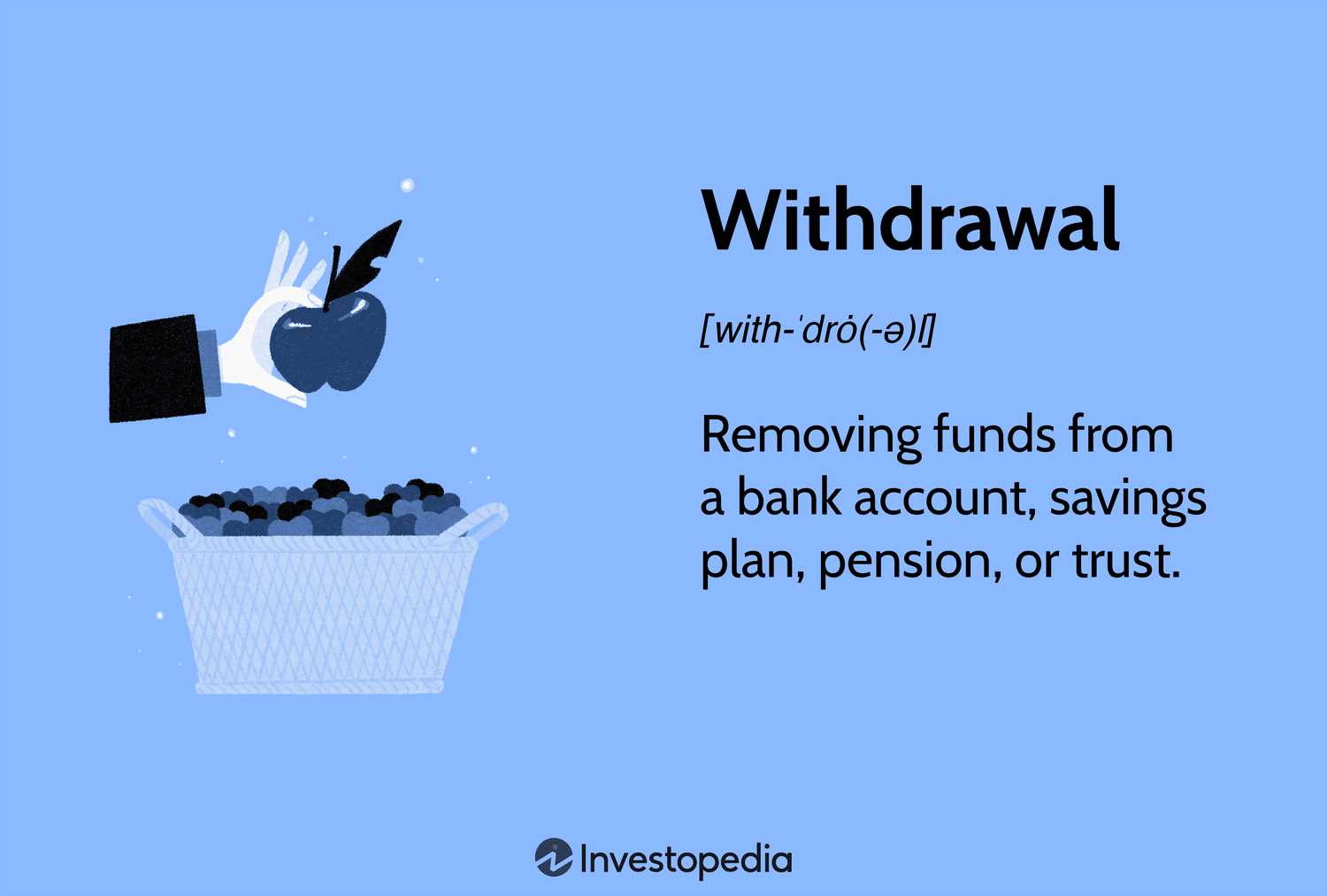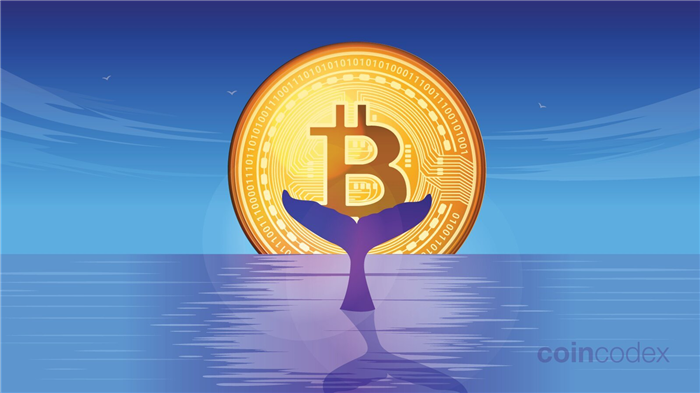Get Familiar with Debanking – A Guide to Withdrawing from Traditional Banking Systems
Are you tired of being under the control of traditional banking systems? Do you feel like you’re just a number in a sea of customers? If so, it’s time to learn about debanking and how it can empower you to take control of your finances.
Debanking is a radical movement that aims to redefine the way we interact with money. It is all about withdrawing from traditional banking systems and embracing decentralization and financial autonomy. In a world where banks have become increasingly powerful and opaque, debanking offers a refreshing alternative.
By debanking, individuals can free themselves from the limitations and constraints of traditional banks. No longer will you have to worry about exorbitant fees, long processing times, and invasive surveillance. Instead, you can enjoy greater privacy, lower costs, and faster transactions by embracing alternative financial platforms.
This article will guide you through the basics of debanking, from understanding the underlying principles to practical steps you can take to start your journey towards financial liberation. We will explore the decentralized nature of cryptocurrencies, peer-to-peer lending, and other innovative technologies that are challenging the traditional banking system.
So, if you’re ready to break free from the shackles of traditional banking, join us as we delve into the world of debanking and discover the exciting opportunities it holds for those seeking financial freedom.
The Importance of Debanking: Understanding the Basics of Withdrawing from Traditional Banking Systems
In today’s digital age, traditional banking systems have become increasingly outdated and restrictive. This has led to a growing interest in debanking, a process that involves withdrawing from traditional banks and embracing alternative financial solutions. Debanking offers numerous benefits and opportunities for individuals and businesses to gain greater financial freedom and control over their own funds.
1. Financial Freedom
One of the key advantages of debanking is the ability to achieve financial freedom. Traditional banking systems often impose restrictions on individuals’ financial activities, such as limiting the amount of money that can be withdrawn or transferred. By debanking, individuals can bypass these limitations and have greater flexibility in managing their finances.
2. Enhanced Privacy
Debanking also provides enhanced privacy for individuals. Traditional banks are required to collect and store personal information, which can potentially be accessed by third parties. Alternative financial solutions, such as decentralized cryptocurrencies, offer greater privacy and security, allowing individuals to retain control over their personal data.
3. Access to Global Opportunities
Debanking opens up opportunities for individuals and businesses to engage in global financial transactions. Traditional banking systems can be limited in terms of international transfers and currency conversions. Embracing alternative financial solutions, such as services debank, enables individuals to easily conduct business across borders and tap into a global market.
4. Lower Fees
Traditional banks often charge various fees for their services, such as ATM withdrawals, account maintenance, and wire transfers. Debanking allows individuals to avoid or minimize these fees by utilizing alternative financial solutions that offer lower transaction costs.
5. Empowering the Unbanked
Debanking plays a crucial role in empowering the unbanked population. Many individuals around the world do not have access to traditional banking systems due to various reasons, such as lack of documentation or living in remote areas. Alternative financial solutions provide these individuals with the opportunity to participate in the global economy and access financial services that were previously unavailable to them.
Overall, debanking offers numerous advantages in today’s evolving financial landscape. By understanding the basics of withdrawing from traditional banking systems and embracing alternative financial solutions, individuals and businesses can achieve greater financial freedom, enhanced privacy, and access to global opportunities.
The Rise of Debanking
In recent years, there has been a growing trend towards debanking, which refers to the act of individuals and businesses moving away from traditional banking systems. This shift has been driven by a variety of factors, including dissatisfaction with the high fees and limited access to financial services offered by traditional banks. Additionally, many people are turning to debanking as a way to maintain financial privacy and avoid surveillance by government agencies.
Challenges with Traditional Banking
One of the main reasons for the rise of debanking is the dissatisfaction with the traditional banking system. Many people find that banks charge excessive fees for common services, such as ATM withdrawals and account maintenance. This puts a financial burden on individuals, especially those who may be living paycheck to paycheck or have limited income. Furthermore, traditional banks often have strict eligibility criteria for opening accounts, making it difficult for individuals with poor credit history or no credit to access basic financial services.
Financial Privacy and Surveillance Concerns
Debanking is also driven by concerns over financial privacy and government surveillance. Many people believe that traditional banks are often required to provide customer information to government agencies, especially in cases involving suspected criminal activity or terrorism. This has led to a demand for alternative financial systems that prioritize privacy and do not share customer data with third parties.
In response to these concerns, decentralized financial technologies, such as blockchain and cryptocurrency, have gained popularity. These technologies allow individuals to conduct transactions without involving a central authority, providing a greater level of privacy and security.
The Benefits of Debanking

There are several benefits to debanking. Firstly, by moving away from traditional banks, individuals can avoid high fees and have better control over their financial transactions. This can result in significant cost savings over time.
Secondly, debanking can provide access to financial services for individuals who may have been excluded from the traditional banking system. This can help promote financial inclusion and empower those who have historically been marginalized.
Lastly, debanking can contribute to a more decentralized and resilient financial system. By utilizing decentralized technologies, individuals are no longer reliant on a single centralized institution for their financial needs. This can help mitigate the risk of bank failures and financial crises that can have wide-reaching impacts on individuals and the economy as a whole.
- Overall, the rise of debanking reflects a growing desire for financial autonomy, privacy, and a fairer banking system. As individuals and businesses continue to explore alternative financial options, it is likely that the trend of debanking will continue to grow and shape the future of finance.
Exploring Alternative Financial Solutions
As more people seek alternatives to traditional banking systems, the world of finance is evolving to meet this demand. Alternative financial solutions offer individuals and businesses the flexibility and control they desire over their money, without being reliant on traditional banks.
One popular alternative financial solution is peer-to-peer lending platforms. These platforms connect borrowers directly with individual lenders, cutting out the middleman and allowing for lower interest rates and more personalized lending terms.
Cryptocurrencies, such as Bitcoin, have also emerged as a viable alternative to traditional banking. These digital currencies operate on decentralized networks and allow for secure, peer-to-peer transactions. Cryptocurrencies provide individuals with greater financial privacy and control over their funds.
Another alternative financial solution is the use of prepaid debit cards. These cards allow individuals to load funds onto a card and use it for purchases and ATM withdrawals. Prepaid debit cards provide a convenient and secure way to manage finances without the need for a traditional bank account.
Furthermore, mobile payment apps are growing in popularity as an alternative financial solution. These apps allow users to make payments and transfer funds using their smartphones, eliminating the need for physical cash or traditional banking services.
Finally, crowdfunding platforms have gained traction as an alternative way to raise funds. These platforms allow individuals and businesses to solicit donations or investment from a large pool of people. Crowdfunding provides access to capital without the need for traditional bank loans or venture capital.
Overall, alternative financial solutions offer individuals and businesses the freedom to choose how they manage their money. From peer-to-peer lending platforms to cryptocurrencies, prepaid debit cards to mobile payment apps, there are a plethora of options available for those looking to explore alternatives to traditional banking systems.
Benefits of Debanking
Debanking, or withdrawing from traditional banking systems, offers a range of benefits for individuals and businesses. Here are some of the key advantages:
1. Financial Independence
One of the main benefits of debanking is achieving financial independence. By moving away from traditional banking systems, individuals can gain more control over their finances and reduce their reliance on banks. This independence allows for greater financial autonomy and the ability to choose alternative financial institutions or decentralized financial solutions.
2. Privacy and Security
Debanking can also provide increased privacy and security for individuals and businesses. Traditional banking systems often collect and store personal data, which can be vulnerable to hacking and unauthorized access. By debanking, individuals can protect their financial information and reduce the risk of identity theft or data breaches.
3. Lower Costs

Debanking can lead to lower costs for individuals and businesses. Traditional banks often charge fees for various services, such as account maintenance, overdrafts, wire transfers, and international transactions. By debanking, individuals can avoid or minimize these fees, potentially saving a significant amount of money in the long run.
4. Access to Alternative Financial Solutions

Debanking opens up opportunities to explore and access alternative financial solutions. This includes decentralized finance (DeFi) platforms, peer-to-peer lending, crowdfunding, and digital currencies. These alternatives can provide individuals with more flexibility, transparency, and potentially better returns on their investments.
5. Empowerment
Debanking empowers individuals and businesses by giving them more control over their financial decisions. Instead of relying on traditional banks to determine loan approvals or investment options, debanking allows individuals to choose financial services that align with their values and goals. This empowerment can lead to greater financial growth and a stronger sense of autonomy.
In conclusion, debanking offers a range of benefits, including financial independence, privacy and security, lower costs, access to alternative financial solutions, and empowerment. By understanding these advantages, individuals and businesses can make informed decisions about their financial journeys and explore the possibilities of debanking.
Understanding the Limitations of Traditional Banking Systems
When it comes to traditional banking systems, it’s important to understand their limitations. While they may have been the dominant way of managing finances for many years, there are several drawbacks and shortcomings that have become increasingly evident, prompting many individuals to explore alternative options.
Here are some key limitations of traditional banking systems:
- Limited Accessibility: Traditional banking systems require individuals to physically visit a branch during specific hours, leading to inconvenience and potential time wasted. This can be particularly problematic for those who live far away from a bank branch or have mobility issues.
- High Fees and Charges: Traditional banks often impose various fees and charges on their services, including account maintenance fees, ATM fees, check printing fees, and more. These fees can add up quickly and eat into your savings.
- Lack of Transparency: The traditional banking model is characterized by opaque policies, making it difficult for customers to fully understand and evaluate the terms and conditions of the services they are utilizing.
- Slow Transaction Processing: Traditional banking systems can be slow when it comes to processing transactions. Transferring money between accounts or sending funds to another person often involves delays and waiting periods.
- Security Risks: Traditional banking systems are susceptible to security breaches and fraud. With the increasing prevalence of cybercrime, individuals need to be vigilant and take extra precautions to protect their finances.
- Limited Innovation: Traditional banks have been slow to adopt innovative technologies and adapt to changing customer needs. This has resulted in a lack of modern features and services that many individuals now expect, such as seamless online banking experiences and integration with digital payment platforms.
These limitations have driven the rise of alternative financial solutions, such as decentralized finance (DeFi), which aim to address these shortcomings and provide individuals with more accessible, transparent, and secure ways to manage their finances.
By understanding the limitations of traditional banking systems, individuals can make informed decisions about their financial needs and explore alternative options that better align with their priorities and values.
How Debanking Helps to Protect Privacy and Security
In today’s digital age, privacy and security have become increasingly important concerns for individuals seeking to protect their personal information. With the rise in cybercrime and data breaches, traditional banking systems can pose significant risks to privacy and security. This is where debanking steps in to provide a solution.
Privacy Protection:
Debanking allows individuals to take control of their personal data by removing it from the traditional banking system. When you debank, you are no longer relying on a centralized institution to store and manage your financial information. Instead, you can choose to store your data locally or utilize decentralized platforms that prioritize user privacy. By doing so, you reduce the risks associated with data breaches and unauthorized access to personal information.
Furthermore, debanking can also protect your privacy by minimizing the amount of data shared with third parties. Traditional banking systems often require individuals to share personal information with various entities, including credit bureaus, government agencies, and service providers. By debanking, you can limit the amount of data shared, resulting in greater control over your personal information.
Security Enhancement:
In addition to privacy protection, debanking also enhances security. Traditional banking systems can be vulnerable to hacking and other cyber threats due to their centralized nature. By decentralizing your financial transactions through debanking, you reduce the risk of unauthorized access to your accounts and funds.
Debanking also promotes security by enabling individuals to utilize alternative forms of authentication. Traditional banks often use passwords or PINs for account access, but these can be easily compromised. On the other hand, debanking allows users to leverage technologies such as encryption, biometrics, and multi-factor authentication to strengthen their security measures and safeguard their financial information from potential threats.
Conclusion:
Debanking offers a way for individuals to protect their privacy and security in an increasingly digital world. By removing personal data from traditional banking systems and embracing decentralized and privacy-focused solutions, individuals can regain control over their financial information and reduce the risks associated with cybercrime and data breaches.
Debanking and Financial Inclusion
Debanking, or the process of withdrawing from traditional banking systems, plays a crucial role in promoting financial inclusion. Financial inclusion refers to the access and usage of financial services by individuals or communities, particularly those who are unbanked or underbanked.
Debanking can help bridge the financial gap by providing alternative financial solutions to those who may not have access to traditional banking services. This can include individuals who live in remote areas, have low incomes, or lack proper identification documents required by traditional banks.
By debanking, individuals and communities can gain access to a wide range of financial services such as digital wallets, mobile banking, and peer-to-peer lending platforms. These alternative solutions often have lower costs, fewer restrictions, and more flexible terms compared to traditional banks.
Financial inclusion through debanking also fosters economic empowerment. When individuals and communities have access to financial services, they can save, invest, and grow their wealth. This, in turn, can lead to increased economic activity, job creation, and poverty reduction.
Moreover, debanking can promote financial literacy and education. As individuals begin to use alternative financial services, they become more aware of their financial rights and options. They can learn about budgeting, managing debt, and making informed financial decisions.
In conclusion, debanking and financial inclusion go hand in hand. By withdrawing from traditional banking systems, individuals and communities can gain access to affordable and convenient financial services, allowing them to participate fully in the economy and improve their overall financial well-being.
Decentralized Finance: A Revolutionary Approach
Decentralized finance, or DeFi, is a groundbreaking concept that aims to revolutionize the traditional financial system. By utilizing blockchain technology, DeFi provides a peer-to-peer network where individuals can have direct control over their financial assets and transactions, eliminating the need for intermediaries such as banks.
One of the key features of DeFi is its inclusivity. Unlike traditional banking systems, which often require extensive paperwork and background checks, DeFi platforms are accessible to anyone with an internet connection and a digital wallet. This opens up opportunities for individuals who are unbanked or underbanked, providing them with a reliable and secure way to manage their finances.
Benefits of Decentralized Finance:
- Transparency: All transactions conducted on DeFi platforms are recorded on the blockchain, making them transparent and traceable. This ensures that all parties involved can verify and audit transactions, reducing the risk of fraud and corruption.
- Security: DeFi platforms employ advanced encryption and smart contract technology to secure users’ funds and personal information. Unlike traditional banks, which have been vulnerable to cyberattacks and data breaches, DeFi offers a highly secure and robust ecosystem.
- Interoperability: DeFi protocols and applications are built on open standards, allowing different platforms and services to seamlessly integrate with each other. This creates a connected ecosystem where users can access a wide range of financial products and services from various providers.
Within the DeFi ecosystem, users have access to a wide range of decentralized applications (dApps) that offer various financial services, including lending, borrowing, trading, and investing. These dApps are powered by smart contracts, which are self-executing agreements that automatically enforce the terms and conditions of a financial transaction.
Challenges and Risks:
- Regulatory Uncertainty: As DeFi operates on a decentralized and global scale, regulatory frameworks and laws are still evolving. This can create uncertainty and challenges in terms of compliance and legal issues.
- Smart Contract Vulnerabilities: While smart contracts are designed to be secure, they are not immune to vulnerabilities or bugs. In the past, certain DeFi platforms have experienced issues with smart contracts, resulting in financial losses for users.
- Market Volatility: Cryptocurrencies, which form the foundation of DeFi, are known for their price volatility. This can pose risks to individuals who hold and transact in digital assets, especially those who are not well-versed in managing their investment risks.
Despite these challenges, the potential of decentralized finance to transform the global financial system cannot be underestimated. As the technology continues to evolve and mature, DeFi has the potential to provide financial inclusion, transparency, and autonomy to individuals around the world.
Disclaimer: This information is for educational purposes only and should not be considered as financial advice. Always do your own research and consult with a professional financial advisor before making any investment decisions.
Debanking and Global Economic Stability
As the debanking movement gains momentum across the globe, it’s essential to examine its potential impact on global economic stability. Debanking refers to the process of individuals and businesses withdrawing from traditional banking systems and seeking alternative forms of financial services. This shift away from banks has the potential to disrupt the global economic landscape in several ways.
1. Financial Exclusion and Inequality
One of the key concerns surrounding debanking is the potential for increased financial exclusion and inequality. While this movement may provide more autonomy and control over personal finances for some individuals, it may also leave many others without access to essential financial services. This could include basic banking services, loans, and investment opportunities. Such exclusion could exacerbate existing inequalities within societies and hinder economic growth.
2. Systemic Risk
Debanking can potentially introduce systemic risk to the global economy. As individuals and businesses withdraw their funds from traditional banking institutions, it may weaken the stability and liquidity of those institutions. If a significant number of people participate in debanking simultaneously, it could trigger a chain reaction of financial instability, affecting financial markets and institutions worldwide. Such instability has the potential to lead to economic recessions or even depressions.
To mitigate these risks associated with debanking, it is important for policymakers and regulatory bodies to closely monitor and adapt to the changing financial landscape. Implementing safeguards and regulations to ensure financial inclusion and stability will be crucial in maintaining global economic stability amidst the ongoing debanking movement.
| Pros: | Cons: |
|---|---|
| – Increased financial autonomy | – Financial exclusion |
| – Potential innovations in fintech | – Systemic risk |
| – Reduced reliance on traditional banking |
Steps Towards Debanking: A Practical Guide
Debanking, or the process of withdrawing from traditional banking systems, can be a daunting task for many individuals. However, with proper planning and awareness, it is a journey that can lead to financial independence and personal empowerment.
Step 1: Assess your financial situation
The first step towards debanking is to assess your current financial situation. Take stock of your income, expenses, and savings. Determine your financial goals and what you want to achieve by debanking.
Step 2: Research alternative financial solutions
Once you have a clear understanding of your financial situation, start researching alternative financial solutions. Look for decentralized financial platforms, cryptocurrency wallets, and peer-to-peer lending options.
Step 3: Open accounts with alternative financial providers
Based on your research, open accounts with alternative financial providers. This could include setting up a cryptocurrency wallet, opening an account on a decentralized exchange, or exploring peer-to-peer lending platforms.
Step 4: Transfer funds from traditional banks
After setting up accounts with alternative financial providers, start transferring funds from your traditional banks. Be mindful of any withdrawal fees or limitations imposed by your current bank.
Step 5: Set up direct deposit and automatic payments
To ensure a smooth transition, set up direct deposit with your alternative financial providers. Coordinate with your employer to have your paychecks deposited directly into your new accounts. Also, set up automatic payments for recurring bills and expenses.
Step 6: Monitor and manage your accounts
Once you have completed the transition, regularly monitor and manage your alternative financial accounts. Keep track of your transactions, balances, and any fees associated with your accounts. Stay informed about any changes or updates in the decentralized financial world.
Step 7: Educate yourself on financial literacy
To make the most of your debanking journey, educate yourself on financial literacy. Learn about personal finance, investment strategies, and risk management. Stay updated on the latest developments in decentralized finance and financial technology.
By following these steps and staying proactive, you can embark on a successful debanking journey. Remember, debanking is a personal choice and may not be suitable for everyone. Consider consulting with a financial advisor for personalized guidance.
Embracing the Future: The Potential Impact of Debanking on Society
Debanking, the act of withdrawing from traditional banking systems, has the potential to revolutionize society as we know it. While some may view it as a radical approach, debanking offers numerous benefits and could have a significant impact on various aspects of our lives.
Financial Inclusion: One of the most notable impacts of debanking is the potential for increased financial inclusion. Traditional banking systems have often left out marginalized communities, making it challenging for them to access basic financial services. By embracing debanking, these individuals can gain financial autonomy and access to services previously denied to them.
Decentralization of Power: Debanking has the potential to decentralize power away from traditional financial institutions and put it back into the hands of the people. With debanking, individuals have increased control over their financial transactions, reducing dependence on banks that often impose strict rules and fees. This shift in power has the potential to challenge the existing financial system, promoting transparency and equality.
Privacy and Security: In an era where data breaches and privacy concerns are prevalent, debanking offers a solution. By relying on decentralized technologies such as blockchain, individuals can conduct transactions with enhanced privacy and security. The removal of intermediaries like banks decreases the risk of sensitive financial information falling into the wrong hands.
Entrepreneurship and Innovation: Debanking has the potential to unleash a wave of entrepreneurship and innovation. With increased financial autonomy, individuals can explore new business opportunities, access funding through alternative means, and create innovative solutions to existing problems. This fostering of entrepreneurship can lead to economic growth and job creation.
Access to Global Markets: Debanking opens up opportunities for individuals to participate in global markets. Traditional banking systems have often made it challenging for individuals in developing countries to engage in international trade due to limited access to financial services. Debanking can provide a pathway for these individuals to tap into global markets, fostering economic growth and empowering individuals in underserved regions.
Overall, embracing debanking has the potential to transform society by promoting financial inclusion, challenging the existing power structures, enhancing privacy and security, fostering entrepreneurship and innovation, and expanding access to global markets. As more individuals and communities embrace debanking, we can move towards a more equitable and inclusive financial system.
FAQ:,
What is debanking?
Debanking refers to the process of withdrawing from traditional banking systems and seeking alternative financial options. This can be done for various reasons, such as dissatisfaction with the services provided by traditional banks or a desire for greater control over one’s finances.
Why would someone choose to debank?
There are several reasons why someone might choose to debank. Some people may be dissatisfied with the fees and charges imposed by traditional banks, while others may want to avoid the potential financial instability that can come with relying on a centralized banking system. Additionally, some individuals may prefer the privacy and control that comes with using alternative financial options.
What are some alternatives to traditional banking systems?
There are several alternatives to traditional banking systems that individuals can consider. These include online banking services, credit unions, and digital currencies such as Bitcoin. Additionally, some people may choose to utilize prepaid debit cards or mobile payment platforms for their financial needs.
Are there any risks associated with debanking?
While debanking can offer various benefits, there are also some risks to consider. One potential risk is the lack of regulation and protection that comes with using alternative financial options. Additionally, some alternative financial services may have limited acceptance or functionality compared to traditional banking systems. It’s important for individuals to thoroughly research and understand the risks before deciding to debank.




